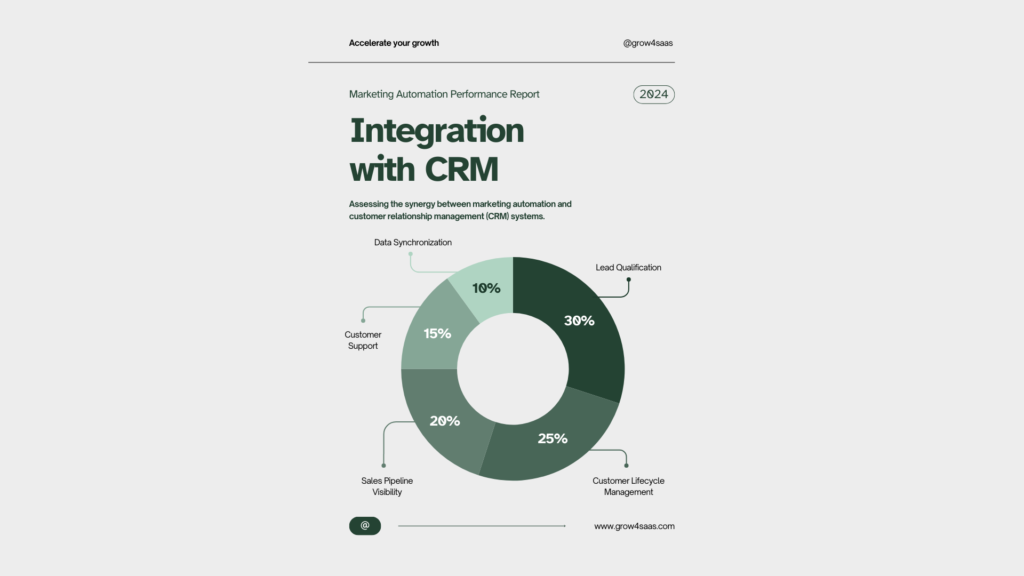Key Guidelines for the Successful CRM Implementation in Your Organization

There is no doubt that in this era of digitalized interactions, there is a dire need to offer customer relationship management (CRM) strategies focusing on improving customer service, increasing sales efficiency, and maintaining customer retention. However, introducing ideal CRM implementation systems into an organization is not a straightforward process, and to leverage it effectively, a focused approach is necessary for the organization and its people.
Highlight the importance of implementing CRM for customer relations management
There are forever reasons why CRM should be applied at all times, so mobilization should be done hardly for CRM and rather changes in operations and practices to seamlessly accommodate CRM adoption. A nimbly mobile enabled CRM easily addresses any of the customer’s touch points allowing offers and promotions, special announcements or upcoming events to connect with customers and potential clients. A productive firm will always seek ways to increase efficiency, and the European or global market does not always present opportunities that can enable a firm to increase sales.
Steps for Successful Implementation of CRM
1. Set Specific Aims and Objectives
In order to implement a CRM strategy, it is vital to create specific Smart goals and objectives that are a constituent of the broader business goal. For example; setting a goal to increase the sales conversions rate during the next three months, systematically improving customer service or understanding customer patterns and building appropriately defined goals with help you make a selection from the potential features and functionalists that support your goal.
2. Make a Selection of the Appropriate CRM Platform
Considering the wide range of CRM systems available, it is important to choose the most suitable system for your organization’s operational context. Let your organization’s needs dictate the choice. Think about expansion potential, ways of connecting with other systems, and convenience.
3. Make Necessary Changes to Your CRM to Enhance Its Efficient Use
Embracing a systemic approach and expecting it to resolve all your CRM problems will always disappoint. Your organization’s marketing strategies, processes, and workflows are unique. CRM effectiveness means making adjustments to the fields, automating repetitive processes, and designing dashboards that ensure the helplessly important information put on the important place.
4. Migration of Data and Integrating Systems
CRM data migration can be defined as one of the most important stages of CRM implementation. There is a need to carry out the transfer of the existing customer data with precision and incorporate other dimensions of the business environment within the new system such as incorporation of other tools in the company like marketing systems or ERP systems that would help to further streamline the flow of the information.
5. Formal Training of Users and Acceptance by Users
The users’ acceptance of the software is probably the most crucial when it comes to the success of any CRM deployment. Provide training sessions and materials geared towards enabling your team to grasp the functionality when the system is fully operational. Employees who have received adequate training in the usage of the CRM are most likely to use it on a regular basis which in turn, improves business outcomes.
6. Success in optimizing and providing solutions
The introduction of a CRM system should not be perceived as a stand-alone task with no further requirements apart from what has been done during the initiation. A well maintained crm system enables further growth for the company. Make it a habit to periodically check and confirm how your CRM is set, analyze what users have to say about it, and update it when and where necessary in order to be in harmony with the company’s objectives. Of as well, a CRM specialist is available all the time to assist in the management of new features and when updates are launched.
Advantages of a CRM Implementation Done Right
Your company’s operations can be completely changed by successfully using a CRM system. The following are some main advantages of a CRM deployment that is successful:
* Improved Customer Relationships: The CRM helps you better understand and address the demands of your customers by centralising customer data.
* Enhanced Efficiency: CRM-enabled task and workflow automation lowers manual labour and boosts output.
* Data-Driven Decisions: Your team can make data-driven decisions that spur growth thanks to the CRM’s actionable insights.
Overcoming Obstacles in CRM Implementation
There are obstacles to using CRM, like problems with data migration or user resistance. Address user issues, involve important stakeholders early on, and make sure your CRM approach is in line with corporate goals in order to overcome these. Selecting a CRM partner can also facilitate the deployment process and offer assistance when required.
Conclusion
CRM deployment is an investment in the future of your company. A properly implemented CRM system may boost team productivity, increase customer happiness, and produce superior company results with the correct strategy. By prioritizing planning, customization, and training, you can unlock the full potential of CRM and set your business on a path to success.


Aute mi ut suspendisse velit leo, vel risus ac. Amet dui dignissim fermentum malesuada auctor volutpat, vestibulum ipsum nulla.
Sed reprehenderit quam, non felis, erat cum a, gravida lorem a. Ultricies in pellentesque ipsum arcu ipsum ridiculus velit magna, ut a elit est. Ultricies metus arcu sed massa. Massa suspendisse lorem turpis ac.
Massa suspendisse lorem turpis ac. Pellentesque volutpat faucibus pellentesque velit in, leo odio molestie, magnis vitae condimentum.